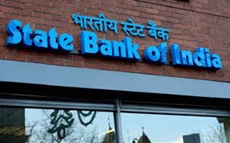Govt moves to speed up mergers of state-run banks
23 Aug 2017
The union cabinet chaired by Prime Minister Narendra Modi has given in-principle approval for public sector banks to amalgamate through an Alternative Mechanism. The decision would facilitate consolidation among the nationalised banks to create strong and competitive banks.
 The cabinet also approved a proposal to set up a ministerial panel to speed up consolidation of state-run banks as part of its efforts to revive credit and economic growth.
The cabinet also approved a proposal to set up a ministerial panel to speed up consolidation of state-run banks as part of its efforts to revive credit and economic growth.
Prime Minister Narendra Modi will name the members of the panel, which will oversee proposals for mergers from the boards of the banks, finance minister Arun Jaitley said after a meeting of the cabinet.
The decision regarding creating strong and competitive banks would be solely based on commercial considerations and the proposal must start from the respective boards of the banks, a finance ministry release stated.
The proposals received from banks for in-principle approval to formulate schemes of amalgamation shall be placed before the Alternative Mechanism (AM). After receiving in-principle approval, the banks will take steps in accordance with law and Sebi's requirements.
The final scheme will be notified by the central government in consultation with the Reserve Bank of India.
The centre started effective action on banking sector consolidation in May 2016 by announcing amalgamation of six subsidary banks of State Bank of India into the State bank of India. The merger was completed in record time, unlike earlier mergers of State Banks of Indore and Saurashtra.
SBI is now a single bank with about 24,000 branches, over 59,000 ATMs, 6 lakh POS machines and over 50,000 business correspondents, which serve all parts of the country, including far flung areas. Nearly 70 percent of SBI's network lies in rural and semi urban areas.
There are now 20 state-run banks other than SBI and these are planned to be merged into three or four major banks with regional focus.
These banks also account for the lion's share of more than Rs9,00,000 crore in sour assets plaguing the sector, and need huge funds in new capital in the next two years to meet global Basel III capital norms.
Non-performing loans of state-run banks have more than doubled in the past two years and were 12.5 per cent of their total loans at the end of March. Including restructured loans, total stressed assets were more than 15 per cent, RBI data shows. State-run banks as a group had a negative return on assets at the end of March, the central bank said.
Banking sector reforms are a major plank of Modi's administration to revive credit growth, which has slowed to multi-decade lows as banks struggle with bad loans.
The government expects the consolidation of banks to facilitate the creation of strong and competitive banks in public sector space to meet the credit needs of a growing economy, absorb shocks and have the capacity to raise resources without depending unduly on the state exchequer.
The government's move comes a day after a nationwide strike by employees of state-run banks to protest government moves to privatise and consolidate banking operations and the huge write-downs of non-performing loans to corporates.


















